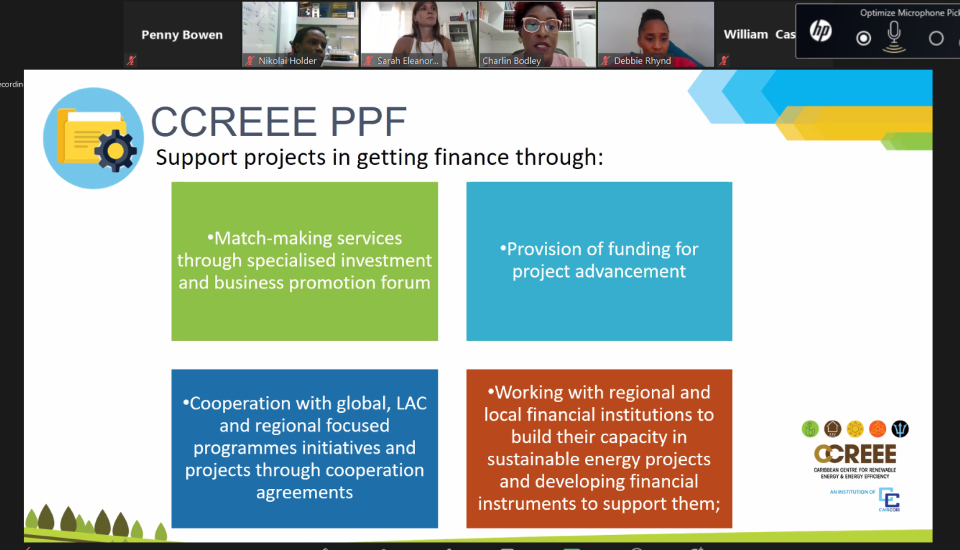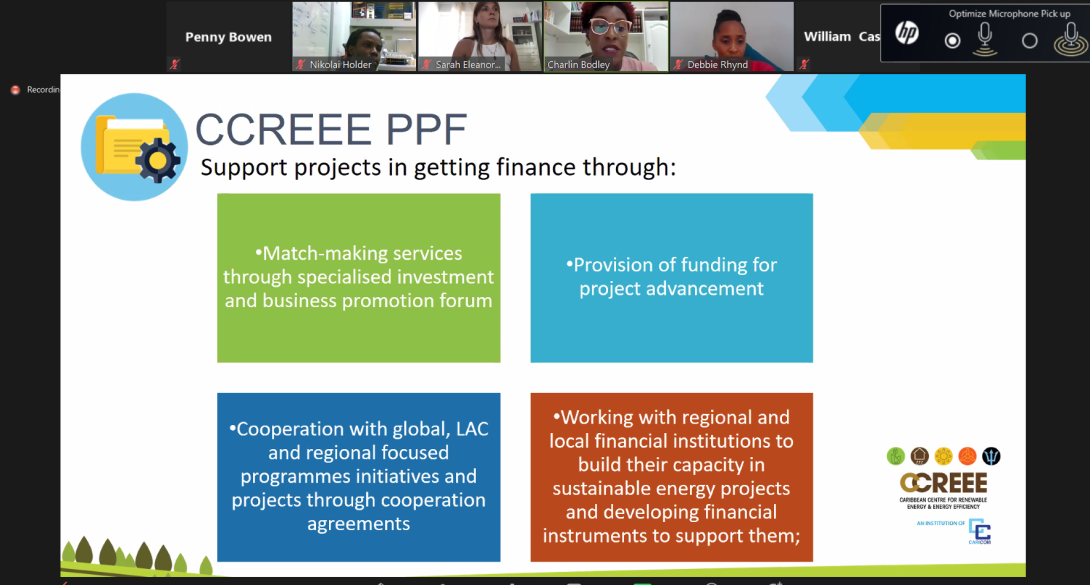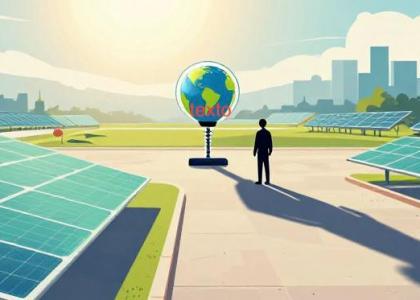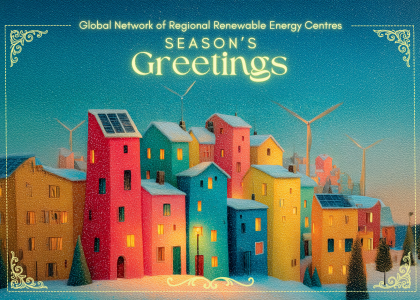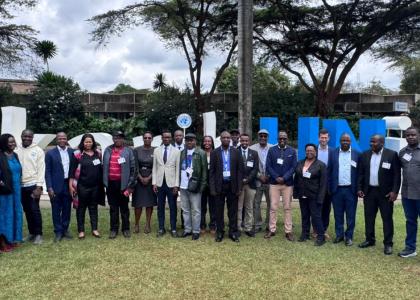In July, the Caribbean Centre for Renewable Energy and Energy Efficiency (CCREEE) joined colleagues from the International Trade Centre (ITC), the University of the West Indies (UWI) and the Sustainable Barbados Recycling Centre (SBRC) to share featured presentations describing technologies and concepts for sustainable agriculture and climate resilience such as solar panels, bioenergy, and waste management. Presentations included ongoing programmes which support the incorporation of renewable energy into agri-businesses and potential to generate energy and by-products from coconut waste. Through 3 presentations the following main topics were a focus of the webinar:
- Sustainable energy technologies for sustainable agriculture
- Biomethane production from coconuts
- By-products from the coconut husk
The webinar was attended by more than one hundred and thirty (130) professionals providing services to the industry, agro-processors, and farmers.
The first presentation was delivered by the CCREEE and bore focus, not only on the sustainable energy technologies which can support the agricultural sector, but also the need and availability of project development support to bridge gaps between project concepts and bankability or investment readiness. It was highlighted that renewable energy and agriculture (and more contextually the coconut industry) present a winning combination in the Caribbean context. The Caribbean boasts of an abundance of renewable energy sources which can be harvested to support agro-processing and other energy intensive processes within the agricultural sector. Technologies to transform agricultural waste - for example, coconut husks - into useful energy as a value-added fuel source to replace traditional sources, was also highlighted as a useful tool for competitiveness and sustainability in the agricultural sector. The presentation also featured details of the application of solar energy through thermal applications and other applications such as solar photovoltaic for electricity generation. Solar dryers and solar water heaters were among the technologies focussed on.
The benefits of sustainable energy technologies were cited as reduction in electricity costs, an effective solution to climate and other vulnerabilities, and environmental benefits. The presentation then gave insight on the specific challenges which may be faced in the conversion of waste to energy in the coconut industry to then segue into the importance of proper project development to overcome them. The service offerings of the CCREEE Project Preparation Facility (PPF) was then presented assuring that the agricultural sector was among the many sectors anticipated to benefit from the facility to get to successful project implementation and consequently more sustainable business operations. Participants were keen to learn about the establishment and operationalisation of the PPF.
The webinar continued with a presentation from the UWI on bioenergy and the biochemical conversions associated with the process. The science behind the conversion of waste to useful energy in the form of biogas was also a focus of this presentation. A practical example through a case study of an anaerobic digester at the Cave Hill Campus was presented through video demonstration.
The third and final presentation by a representative from a waste processing facility - the Sustainable Barbados Recycling Centre - focused on waste management of coconut husks and by-products, highlighting the aim of reducing the quantity of waste going into the landfills. The handling of coconut waste products going through the facility was described in detail. The presenter gave details of the operations of the facility and informed of the current use of solar PV to produce electricity for the operation of the facility, to produce useful products such as mulch and fertilizers among others.
At the webinar’s conclusion, more than 93% of participants indicated that they were very satisfied or satisfied with webinar content.

